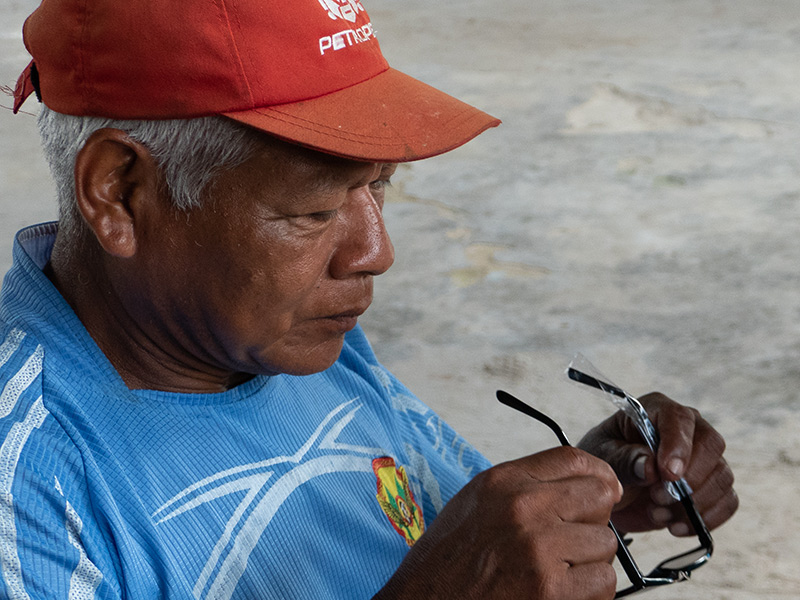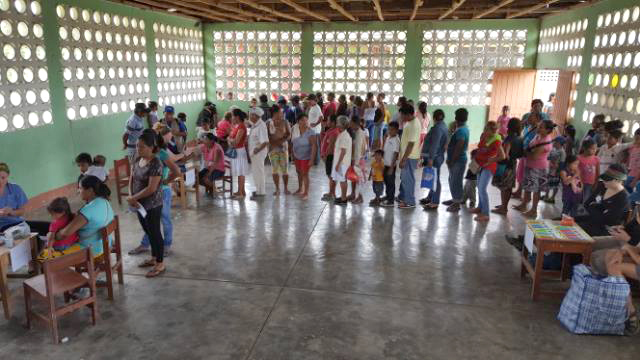DB Peru
Medical Programs
Our goal is to provide improved access to healthcare during time of illness.
One of DB Peru’s core missions is to provide medical treatment and care to the people in the villages along the lower Napo River. This international volunteer effort includes doctors, nurses, nurse midwives and technicians working along side local healthcare professionals in the jungle. Temporary clinics are most often set up in the village schoolhouses. Medicines and supplies are either donated by private persons or businesses, or purchased from the Minister of Health in Peru.
All patients are registered and most of the healthcare needs are addressed in the villages. Those with chronic conditions, more serious illnesses or injuries receive follow up visits. However, when patients are in urgent need of more advanced care and treatment, they are transported to local clinics and/or hospitals.
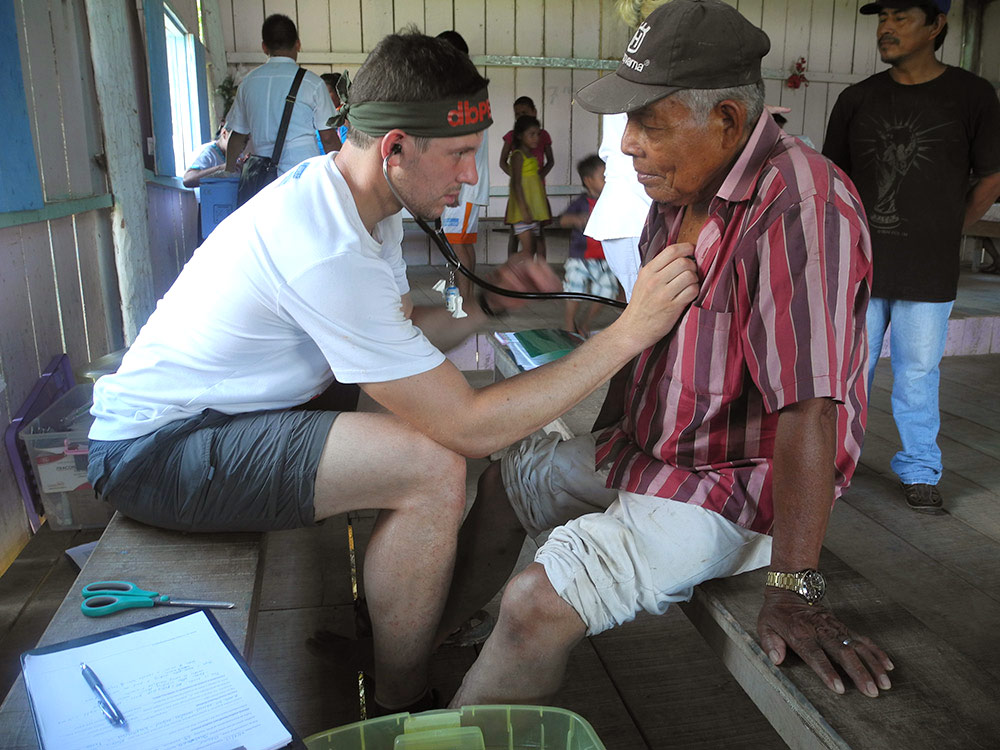
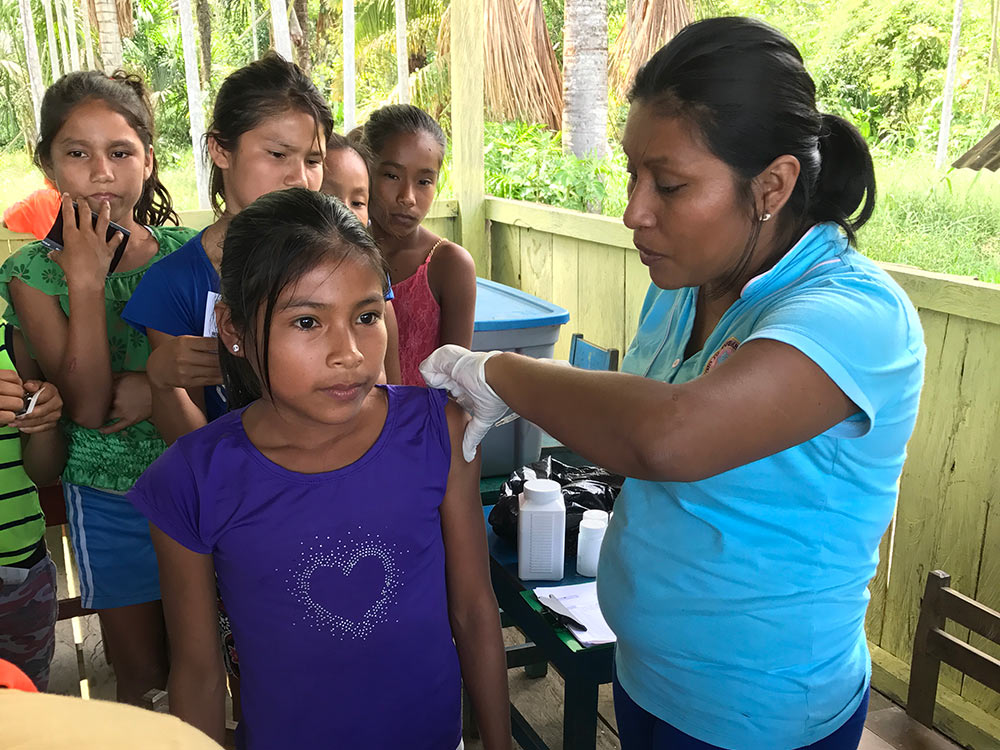
Dental Programs
Our goal is to provide access to dental hygiene and treatment to improve the overall health of each individual.
Dental care along the lower Napo River has been fairly non-existent. According to Mayor Edward Reategui, there is one dentist for 15,000 people in the district of Mazan.
Working with the Canadian NGO Kindness in Action, DB Peru offers bi-annual dental clinics held in the villages. Both adults and children are now able to receive more advanced dental care including cleanings, fillings and extractions.
Dental hygiene classes are offered as a regular part of our education in the villages. The classes are very popular with the children who line up for new toothbrushes during the visits. In addition, we provide fluoride treatments for pre-school and school age children.
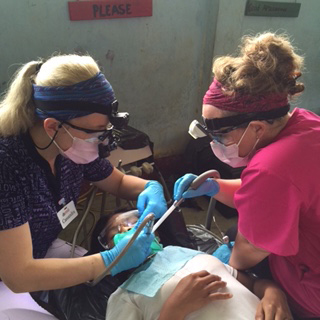
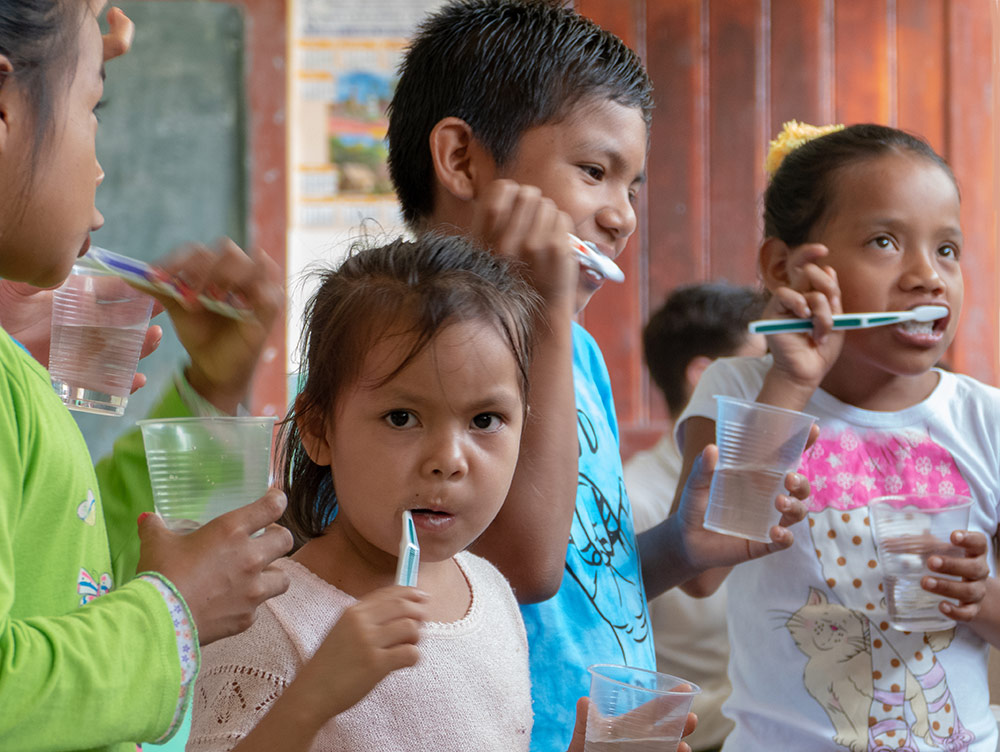
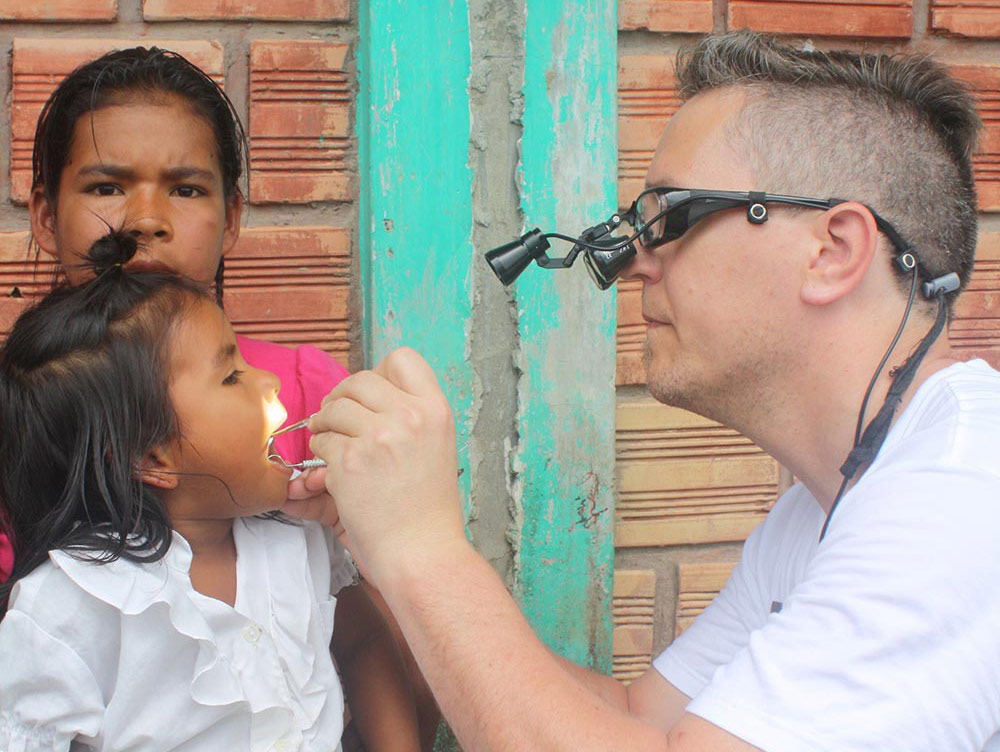
Pallative Care
Our goal is to relieve suffering for a person whose health is not expected to improve.
Sara Warzecka, MD initiated this project with DB Peru and has published the results of a study she conducted in the lower Napo River villages. Care of people at their end of life, or at a time when they are not expected to improve can be particularly difficult when living in a low resource setting.
Selected health workers are trained on advanced medications and comfort measures to be used when there are people in need in their communities or surrounding villages. They are given backpacks with supplies and medical equipment to assist with their work. Education is provided to all community members so they can help to support and to prevent isolation and loneliness of the dying patient.
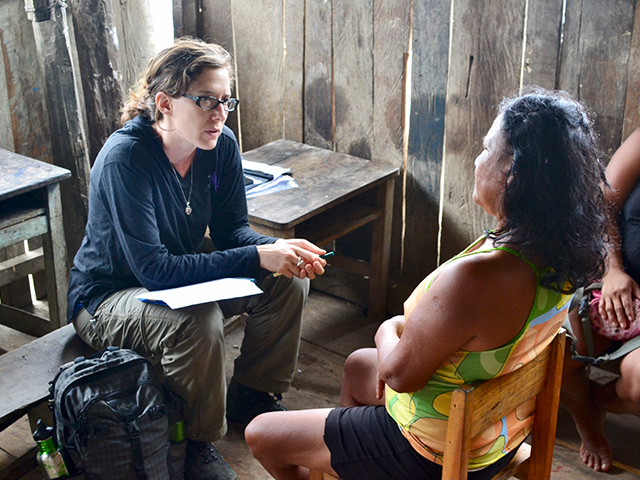
Dr. Warzecka with patient
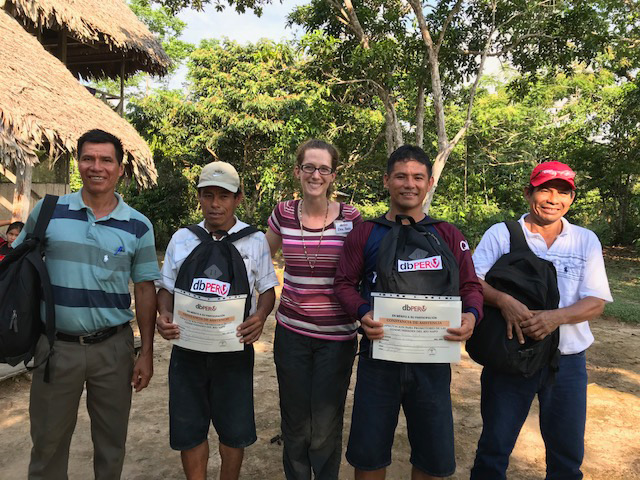
Healthcare Workers with Dr. Warzecka
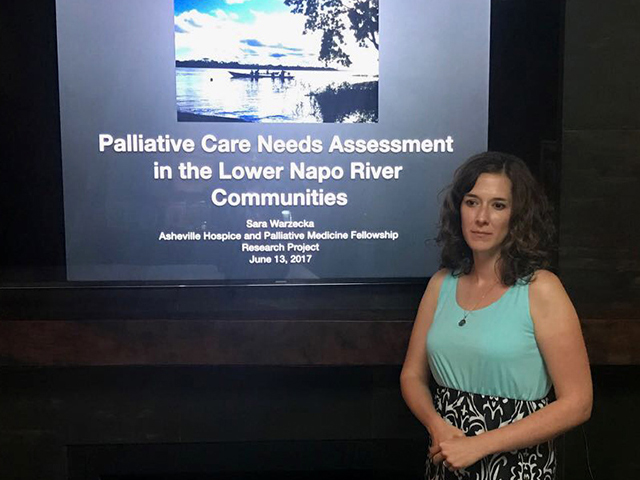
Presentation in Asheville, NC
Technology, Equipment, and Medicines
Our goal is to improve access to healthcare.
By bringing services and resources closer to the people, many of the healthcare needs are met nearer to home, reducing the need for people to travel in already compromised medical conditions.
TECHNOLOGY
Technological advances have slowly made their way to the jungle communities with more telephone and solar panels sprouting up along the river communities.
DB Peru’s past efforts have included the installation of radios in the jungle communities. Those efforts are now being redirected to electronically connect doctors and healthcare workers from nearby clinics and hospitals directly to the villages. Telemedicine is coming to the jungle!
Paperwork is being expedited by use of electronic records for medical exams and attendance at educational sessions.
EQUIPMENT
DB Peru works diligently to assure the clinics and hospitals along the lower Napo River are stocked with the basic equipment and supplies necessary to provide ongoing patient care. Instruments and equipment rust quickly in the heat and humidity of the jungle necessitating their continual restoration and replacement. We rely heavily on donations to ensure all equipment is clean and in working order.
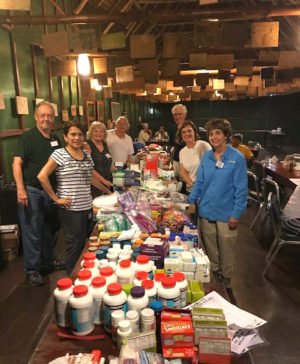
MEDICINES
DB Peru has recently transitioned from the delivery of free medicines to a program of sustainable medication acquisition using resources within the lower Napo communities. Each village has a lay healthcare worker called a health promotor. The people in the villages pool their monies to be given to the promotores who, in turn, purchase medicines from the government clinics and pharmacies for resale back in the villages. This allows for people to access over-the-counter medicines more easily within their own community.
Due to absence of pharmacies in the jungle, we are working to establish centers for storage of simple and common medicines to be accessed by the promotores to better serve their communities.
Past donations of medical equipment, supplies and medicines have been made to the jungle clinics in Mazán, Orellana, Santa Clotilde, Tamanco, Yanashi, Mangua, Puinahua as well as the three hospitals in Iquitos.
Eye Program
Our goal is provide reading glasses to help others see again.
Scott Dennis from Ohio has provided us with thousands of new reading glasses strengths 1.0 – 4.0. Our first delivery was September 2006 and we have continued to bring the reading glasses with us on almost every trip to the jungle and to our health fairs. Faces light up with smiles every time the glasses bring the world into focus.
Scott also sends sunglasses, which have proved popular with the men, who fish and work in the fields in the strong equatorial sunshine.
